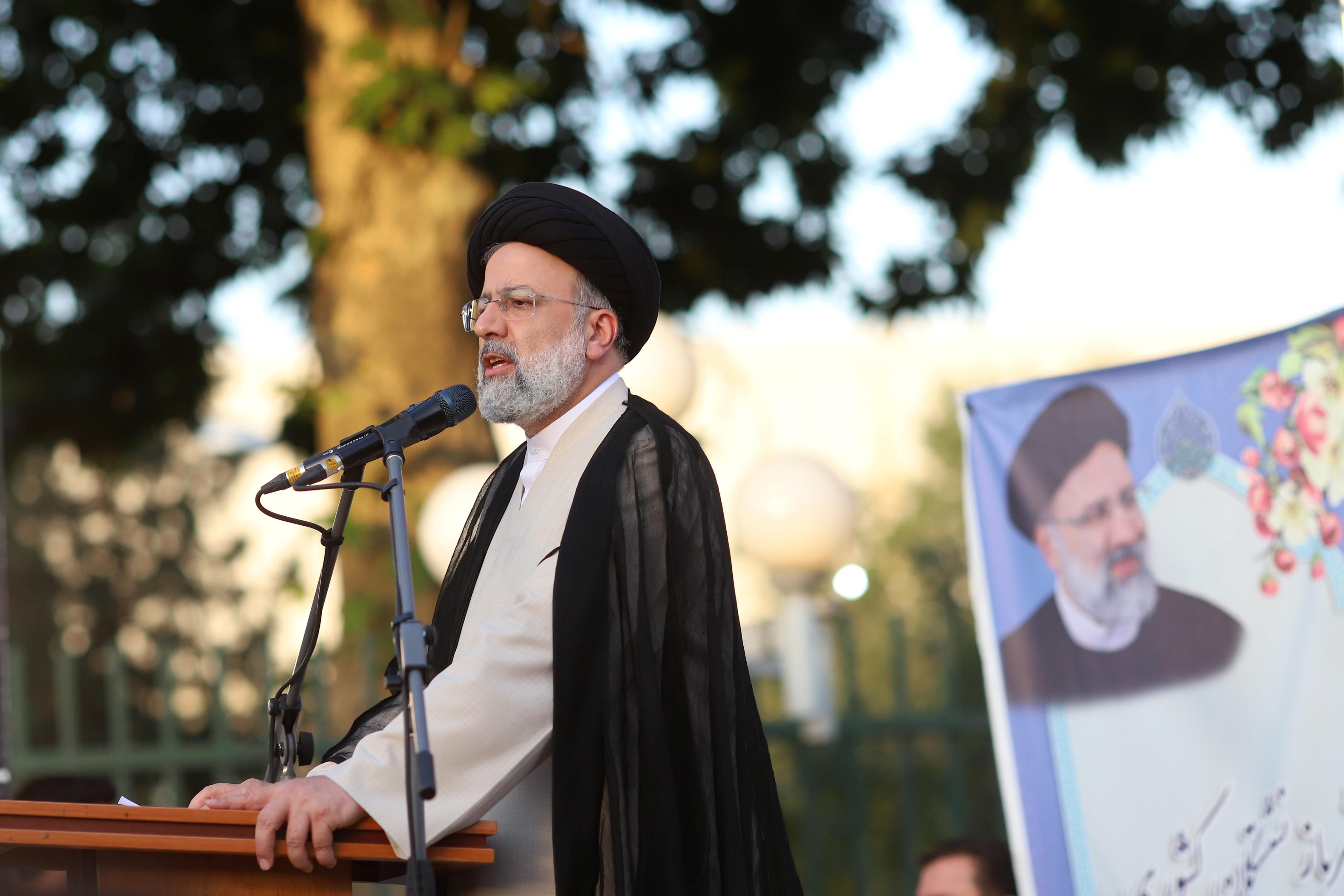Iranians will go to the polls on Friday to vote for president. While surprises are possible, it's very likely that Judiciary Chief Ebrahim Raisi will win, succeeding current President Hassan Rouhani, who is stepping down because of term limits.
Raisi is a true hardliner, and while Iranian presidents have a constrained role, he will leave an important mark on both foreign and domestic policy. Eurasia Group senior analyst Henry Rome explains who Raisi is, how he became the frontrunner, and what his election would mean for Iran.
Who is Raisi?
Raisi is ideologically very close to Khamenei, who has elevated Raisi to positions of national prominence throughout his career. Raisi has unimpeachable hardline credentials; he is well known in Iran as a participant in the 1988 "death commission," in which thousands of political prisoners were executed after summary trials. Yet Raisi is also a poor politician — uninspiring, uncharismatic, with only a tenuous grasp on issues facing average citizens. Rouhani beat him decisively in the 2017 election.
What does being the frontrunner mean in the Iranian context?
Iranian elections are historically neither free nor fair, but they are usually competitive and offer citizens real, if limited, choices. This year, the state took its electoral control to a new level. The Guardian Council, which vets candidates for national office and is closely aligned with Supreme Leader Ali Khamenei, disqualified several candidates who posed a potential challenge to Raisi, such as former parliament speaker Ali Larijani. The council's arbitrary disqualifications drew rebukes from across the political spectrum (and even half-hearted concern from Raisi himself). But Khamenei, who calls the shots at the end of the day, endorsed the council's actions.
Does Raisi have any competition?
Raisi has three competitors, including one moderate figure (six competitors were approved, but three have already dropped out; additional ones may pull out ahead of the race as well). Aside from Raisi, none of the remaining candidates has a national profile or base of support. With a lack of real options, most Iranians will likely sit out of the election. Only about 40 percent of Iranians have told pollsters they will vote, which would be the lowest turnout in the history of the country.
This will deprive Raisi of a real popular mandate and undermine the legitimacy of the election broadly.
Given the damage to its legitimacy, why is the state putting its thumb on the scale in favor of Raisi?
The state's intervention on behalf of Raisi is essentially a back-handed vote of confidence: It reflects a strong desire to elevate Raisi but real doubts about whether he could win on his own. Another electoral defeat would likely doom his career.
The broader context is quite important. Khamenei, who has led Iran since 1989, is 82, and concerns about succession have loomed large in the background of this campaign. Raisi is on a shortlist of people that Khamenei appears to be grooming for the top job, although he is not a shoo-in. Whether he succeeds Khamenei when the leader dies, Raisi is presumably a safe pair of hands during a potentially tumultuous leadership transition.
What would Raisi's election mean for the nuclear deal and relations with the US?
Khamenei is the ultimate decision-maker on issues like the nuclear agreement, but Raisi has publicly supported the deal and has pledged to get the US sanctions removed as quickly as possible. Raisi wants to benefit from the economic boost of a deal while blaming his predecessor for negotiating the uncomfortable and unpopular compromises that will make it possible. So if the parties reach a deal before the presidential inauguration in August, Raisi would likely honor it.
If they don't, he will likely help bring it quickly to a conclusion. Yet despite a nuclear deal, US-Iran relations will probably worsen in the coming years, given Raisi's staunchly anti-American stance and toxic history.
Iran has experienced period violent protests, largely focused on economic issues. What can Raisi offer on the economy and what is the risk of future unrest?
Raisi is a firm believer in Khamenei's notion of a "resistance economy," in which Iran builds up domestic capacity and self-reliance at the expense of broader global integration, especially with the West. But this strategy has very significant limitations. Iran's industrial sector, including automotive and energy, needs foreign inputs and investment to grow in a sustainable way. A more closed economy would struggle to create jobs, combat corruption, and raise living standards. And it would ignore the desire of many Iranians for closer ties with the West and for access to Western consumer goods.
Could that spell trouble for him?
Unmet popular expectations would leave Raisi exposed to popular discontent, especially once the initial economic benefits of a return to the nuclear agreement wear off. If Raisi gets roughed up in the presidency, the whole state may suffer further dents to its credibility. If Raisi is president that would mean that for the first time in the Islamic Republic, the presidency, judiciary, parliament, much of the media, and the security and intelligence services would all be in the hands of hardliners.
If and when things go wrong, it will be more difficult to point fingers elsewhere.
- Who will change Iran? - GZERO Media ›
- After Iranian election, revival of nuclear deal with US is a safe bet - GZERO Media ›
- Iranian president’s death complicates a “Supreme” problem - GZERO Media ›
- Trump trial: How would a conviction hurt his reelection bid? - GZERO Media ›
- The Iran nuclear deal - GZERO Media ›
